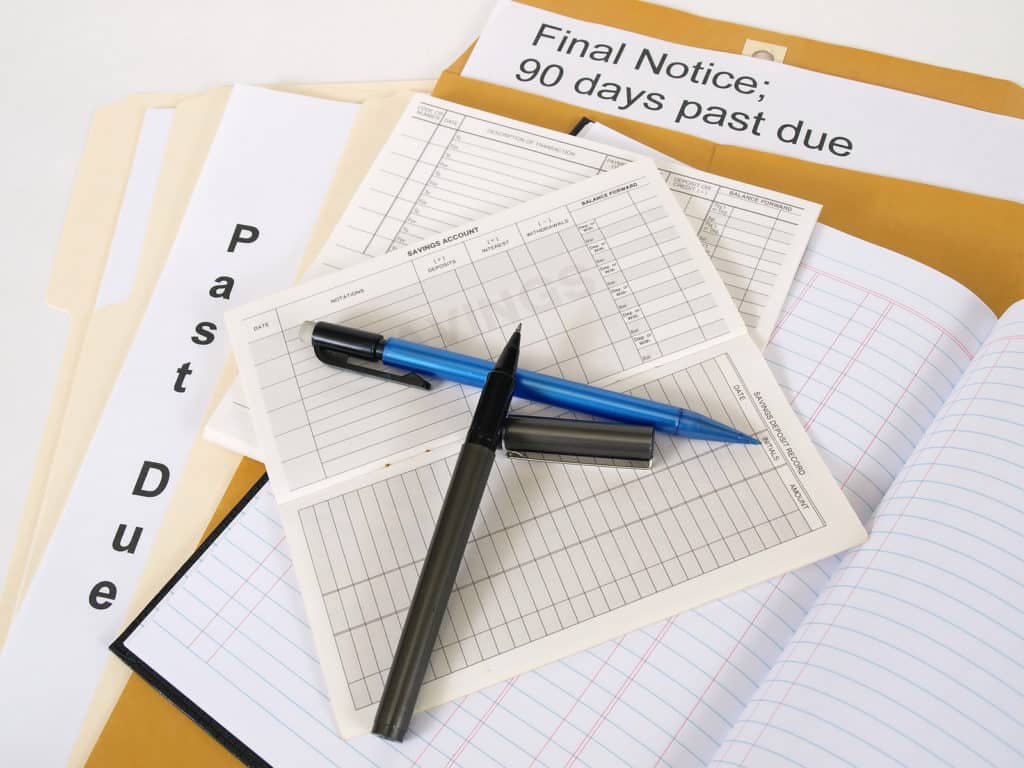Dealing with a debt lawsuit can be a highly stressful and challenging process, but one must know that there are legal strategies one can employ to dismiss the lawsuit. In addition, you can better navigate the legal system and protect yourself from potential financial repercussions by understanding your rights and the requirements surrounding debt lawsuits.
When facing a debt lawsuit, it’s essential to scrutinize the details of the claim and investigate any inconsistencies or inaccuracies within the paperwork. This may involve examining the debt amount, the statute of limitations, and the validity of the creditor’s claim. By identifying potential errors, one may be able to present a strong defense in court, increasing the likelihood of getting the lawsuit dismissed.
Furthermore, understanding your state’s specific laws and regulations surrounding debt lawsuit procedures can also play a critical role in effectively defending yourself. Familiarizing yourself with these legal intricacies will help you better prepare for court proceedings and improve your chances of achieving a positive outcome.
Understanding Debt Lawsuits
Debt lawsuits can be intimidating and overwhelming for those involved. Therefore, it is essential to have a firm grasp of legal concepts and processes to better navigate such situations. This section offers insights into debt collection laws, statutes of limitations, and court summons.
Debt Collection Laws
Debt collection lawsuits are civil cases governed by state law. These laws ensure that debtors are treated fairly and outline the legal processes for creditors. The Fair Debt Collection Practices Act (FDCPA) is a federal law that governs third-party debt collectors and their conduct. It forbids harassment or deceptive practices in pursuing payment. Debtors should familiarize themselves with federal and state laws, as they offer rights and protections from unjust practices.
Statute of Limitations
In part, debt relief can be obtained by understanding the statute of limitations. This refers to the time a creditor has to file a legal claim against a debtor. Once the statute of limitations has expired, the debtor can no longer be legally obligated to repay the debt.
- State-specific: The limitations period varies depending on the state where the debtor resides and the type of debt in question.
- Start date: The statute of limitations usually takes effect from the debtor’s last activity on the account, such as the last payment or written acknowledgment.
- Debt revival: In some states, partial payment or written acknowledgment of the debt may reset the statute, effectively extending the limitations period.
Awareness of these nuances can prove valuable in mounting a defense against a debt collection lawsuit.
Court Summons
When a creditor files a debt collection lawsuit, the debtor is served with a court summons. The summons is an official notice of the lawsuit containing essential details such as:
| Item | Description |
|---|---|
| Plaintiff | The creditor or third-party agency pursuing the claim. |
| Defendant | The debtor, or the person being sued. |
| Court | The court where the lawsuit has been filed. |
| Case Number | A unique identifier assigned to the lawsuit. |
| Response Deadline | The deadline by which the debtor must respond to the lawsuit is typically 20 to 30 days after receiving the summons. |
Responding to the summons is crucial, as failing to do so may result in a default judgment against the debtor. Therefore, it is essential to consult a legal professional if unsure how to proceed with the lawsuit.

Responding to a Debt Lawsuit
When you receive a debt lawsuit, it’s essential to understand the necessary steps to respond and possibly get it dismissed. This section will cover the main aspects of responding to a debt lawsuit.
Owe the Debt
First, determine if you truly owe the debt. Then, carefully review the complaint and verify the creditor, the amount, and relevant details. If you believe the lawsuit is invalid, present any supporting documentation or information as part of your response.
Deadline
Pay close attention to the deadline for responding to the lawsuit, which should be specified in the complaint. Missing the deadline could result in an automatic default judgment in favor of the creditor. Check your local jurisdiction for specific deadline requirements, varying from state to state.
Answer
You must submit an answer to the court to formally respond to the lawsuit. This document outlines your defenses and counterclaims. Some common defenses include:
- Statute of limitations: The debt is too old to be legally collected.
- Incorrect debt amount: The creditor claims a higher amount than you owe.
- Identity theft: The debt was incurred fraudulently and is not your responsibility.
When drafting your answer, follow the required format for your jurisdiction, which may involve using a specific form. Additionally, provide any supporting documentation to strengthen your defense.
Default Judgment
If you fail to respond to the lawsuit promptly, the court may grant the creditor a default judgment, giving them the right to collect the debt. Filing your answer before the specified deadline and actively participating in the legal process is crucial to avoid this outcome.
Challenging the Debt Lawsuit
When faced with a debt lawsuit, understanding how to challenge the case effectively is crucial. This section covers the essential steps to get the lawsuit dismissed.
Validation Letter
Upon receiving notice of a lawsuit, immediately request a validation letter from the collection agency or creditor. Under the Fair Debt Collection Practices Act (FDCPA), a consumer has the right to seek validation of their debt. A validation letter should include, among other pieces of information, details about the original creditor, the current balance, and any additional charges.
Documentation
Once the validation letter is received, please review it carefully and gather any documents related to the alleged debt. This may include original agreements, payment receipts, and correspondence with the creditor. It is essential to verify that the documents provided by the creditor match the information in the validation letter and to identify any discrepancies. Careful examination of these documents can provide a foundation for disputing the debt.
Interest
Verify the amount of interest claimed in the lawsuit. Sometimes, interest can be inaccurately calculated or unlawfully inflated. Identify and challenge any discrepancies in interest calculations, which could help achieve a debt settlement or relief.
Evidence
Gathering strong evidence that supports one’s stance is crucial to challenging a debt lawsuit. In addition, it is essential to consider whether any applicable statutes of limitations have expired or if the creditor can provide adequate documentation proving the debt is valid. In some cases, a lack of evidence may result in a dismissal of the case.
Disputing a debt lawsuit requires attention to detail and a carefully planned challenge. Following the steps in this section, including obtaining a validation letter, reviewing documentation, verifying interest, and gathering evidence, may bolster one’s ability to successfully dismiss a debt lawsuit.
Filing a Motion to Dismiss
Filing a motion to dismiss a debt lawsuit can be a strategic way to get the case dismissed potentially. However, it’s essential to understand the process and obtain the necessary legal advice. The following are two key aspects to consider when filing a motion to dismiss:
Legal Advice
Getting appropriate legal advice is crucial before filing a motion to dismiss. Debt litigation can be complex, and a legal professional can help you understand your rights and obligations. It’s essential to consult with someone with experience in your jurisdiction to ensure your motion is filed correctly and complies with local rules.
Legal advice may include guidance on the proper grounds for filing a motion to dismiss, such as the statute of limitations or lack of jurisdiction. Additionally, a lawyer can help you navigate the court procedures, necessary forms, and deadlines.
Qualified Attorney
When facing a debt lawsuit, working with a qualified attorney who can represent your interests and help you file an effective motion to dismiss is crucial. In addition, a skilled lawyer can assess your case and potentially identify valid legal defenses based on the details of your situation.
A qualified attorney can also help you with the following:
- Review your case thoroughly and identify any potential weaknesses in the plaintiff’s claims
- Prepare and file the necessary documents, including the motion to dismiss
- Respond to any opposing motions or arguments presented by the plaintiff
- Appear in court on your behalf and present arguments in support of your motion
Finding the right attorney experienced in debt litigation can significantly increase the likelihood of a favorable outcome for your case, including the dismissal of the lawsuit.

Settlement and Negotiation
In trying to get a debt lawsuit dismissed, one of the critical aspects that should be considered is settlement and negotiation. This approach allows the debtor and the creditor to reach a mutual agreement and avoid a lengthy litigation process. Settlement and negotiation could be achieved through different means, including settlement agreements, lump sum payments, and wage garnishment.
Settlement Agreement
A settlement agreement is a legally binding document outlining the terms and conditions agreed upon by the debtor and the creditor. It typically involves a compromise, where the debtor agrees to pay a portion of the debt in exchange for the creditor dismissing the lawsuit. To ensure the agreement is fair and enforceable, both parties must carefully review the terms, negotiate if necessary, and document the agreement in writing.
Lump Sum
Another option for settling a debt lawsuit is offering a lump-sum payment to the creditor. In this case, the debtor negotiates with the creditor to pay a reduced amount of the total debt, usually as a one-time payment. This approach can benefit both parties, as the debtor clears the debt at a lower cost, and the creditor recovers a part of the owed amount without going through the costly and time-consuming legal process.
Wage Garnishment
Wage garnishment is a method where a portion of the debtor’s wages is deducted from their paycheck to repay the debt. This option is usually considered when a debtor cannot pay a lump sum or negotiate a settlement agreement. While it may not be the preferable outcome for the debtor, it can still help avoid a judgment and potential additional legal consequences. To implement wage garnishment, the creditor must obtain a court order, which allows them to garnish the debtor’s wages directly from their employer.
Regardless of the method chosen for settling and negotiating, keeping open lines of communication with the creditor and demonstrating a willingness to resolve the issue is essential. By considering the various approaches, such as settlement agreements, lump sum payments, and wage garnishment, one can find a solution that best fits their financial circumstances and successfully dismiss the debt lawsuit.
Going to Court
Going to court for a debt lawsuit can be an intimidating experience, but with proper preparation, you may have the lawsuit dismissed. This section covers the aspects of the court process, including the hearing, the role of the judge, and court costs.
Hearing
The first step in the court process is the hearing. During the hearing, the plaintiff (the party suing you) and the defendant (you) will present their evidence and arguments before the judge. It is crucial to attend this hearing, as failing to do so may lead to a default judgment against you, which can be difficult to overturn.
Preparing for the hearing should include the following:
- Gathering all relevant documents, such as written agreements, payment records, and any communication with the creditor.
- Research the applicable laws and any affirmative defenses that may apply to your case.
- Organize your evidence and arguments clearly and concisely.
- Practicing your presentation to ensure you can confidently articulate your case.
Judge
The judge plays a significant role in a debt lawsuit as they will listen to each party’s arguments and evaluate the evidence presented. They have extensive legal knowledge and will assess whether the plaintiff has met the required burden of proof. The judge may dismiss the lawsuit if the plaintiff fails to prove their case. As such, it is essential to understand the judge’s role and present your arguments professionally and respectfully.
Court Costs
Anytime you are involved in a civil court case, you are likely responsible for certain court costs, including filing fees, service fees, copying fees, and other related expenses. These costs can vary depending on your jurisdiction and the specific requirements for your case. If you successfully dismiss the lawsuit, you may ask the judge to award court costs to be paid by the plaintiff.
Some courts may also grant fee waivers for individuals who cannot afford the court costs. You can inquire with the court clerk about the process for applying for a fee waiver if necessary.
Post-Disposition Options
After a debt lawsuit has concluded, depending on the case outcome, several post-disposition options must be considered. These options will determine the future status of the debt, including its impact on credit reports and potential relief for the debtor. This section will explore with prejudice, without prejudice, and bankruptcy protection options.
With Prejudice
A dismissal with prejudice means that the creditor can no longer pursue legal action against the debtor for the specified debt. This often results from some error on the creditor’s part, such as a lack of proper documentation or violating the statute of limitations. The debt is considered resolved, and future collection attempts by the creditor are prohibited.
When a debt is unfairly dismissed, it generally positively impacts the debtor’s credit report. Future interest accrual on the debt is also halted. However, the debtor must monitor their credit report to reflect the dismissal accurately.
Without Prejudice
A dismissal without prejudice allows the creditor to refile the lawsuit and pursue legal action again in the future. Reasons for this type of dismissal might include a procedural issue or an incomplete presentation of the case by the creditor. The debtor remains at risk for future litigation concerning the debt.
Debtors should know that the dismissed debt may still appear on their credit report and accrue interest. Therefore, they must keep track of any changes and take necessary actions to mitigate potential damage to their credit.
Some additional steps you can take to increase your chances of a successful dismissal include:
- Requesting debt validation from the plaintiff
- Filing a counterclaim if the debt collector violated your rights under the Fair Debt Collection Practices Act
- Attending all court hearings and being prepared with appropriate documentation
Bankruptcy Protection
If a debtor cannot resolve the debt through a lawsuit dismissal or other means, they may consider bankruptcy protection a last resort. Bankruptcy can offer debt relief by discharging or reorganizing the debt, thus halting the creditor’s collection efforts.
However, bankruptcy will significantly negatively impact the debtor’s credit report for several years. Additionally, not all debts are dischargeable in bankruptcy, so debtors need to consult a bankruptcy attorney or professional for advice.
Conclusion
In summary, successfully getting a debt lawsuit dismissed involves a thorough understanding of the legal process and preparing a solid defense promptly. In addition, a dismissal can be achieved by highlighting procedural errors, challenging the claim’s validity or the claimant’s right to file the suit, and gathering proper evidence to support one’s case.
It is crucial to be proactive upon receiving a lawsuit notice and respond within the given time frame. Researching the relevant laws and regulations or consulting with a legal expert can provide valuable insights into the most appropriate defense strategy.
Additionally, debtors should be aware of their rights and seek relief if the creditors violate consumer protection laws, such as the Fair Debt Collection Practices Act (FDCPA). An assertive approach in highlighting these violations can be a powerful tool for dismissing the lawsuit.
While the process can be intimidating, debtors who familiarize themselves with the relevant information and act diligently have a better chance of achieving a favorable outcome in their debt lawsuit.
Frequently Asked Questions
Can I get a debt lawsuit dismissed if I never received a summons?
If you can prove that you never received proper notification of the lawsuit, the case may be dismissed due to improper service.
What should I do if the debt is too old?
If the debt is beyond the statute of limitations, you can file a motion to dismiss the lawsuit on this basis.
Can I get a case dismissed if the plaintiff cannot provide adequate debt documentation?
Yes, the plaintiff is responsible for providing proof of the debt, and a lack thereof might lead to a dismissal.
Knowing your rights when dealing with debt collectors and lawsuits is essential. Understanding the common reasons for dismissal can help you assess your situation and determine the best course of action. Remember that each case is unique, and it is wise to consult with a legal professional when possible.



